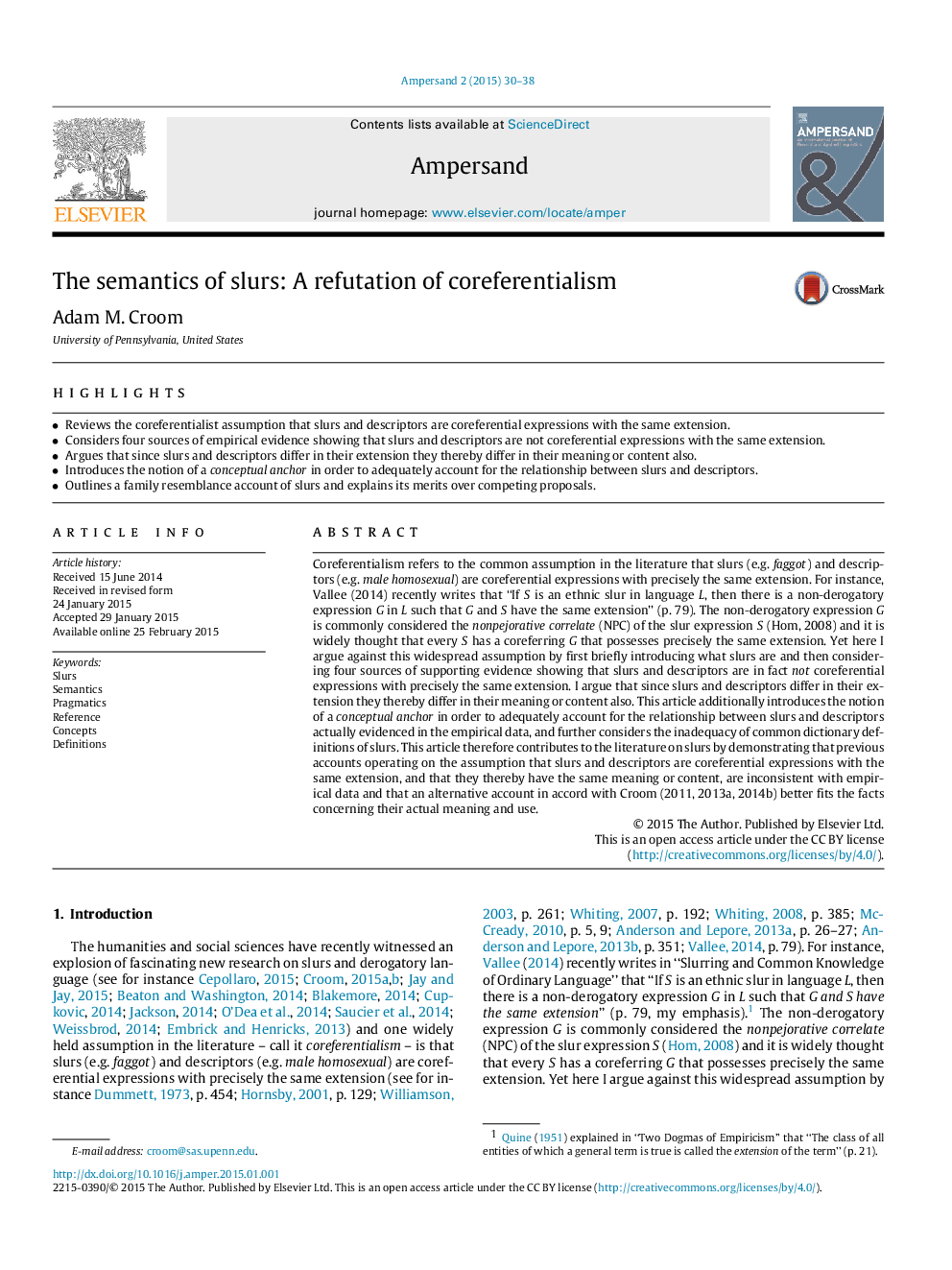| کد مقاله | کد نشریه | سال انتشار | مقاله انگلیسی | نسخه تمام متن |
|---|---|---|---|---|
| 1100477 | 1488056 | 2015 | 9 صفحه PDF | دانلود رایگان |
• Reviews the coreferentialist assumption that slurs and descriptors are coreferential expressions with the same extension.
• Considers four sources of empirical evidence showing that slurs and descriptors are not coreferential expressions with the same extension.
• Argues that since slurs and descriptors differ in their extension they thereby differ in their meaning or content also.
• Introduces the notion of a conceptual anchor in order to adequately account for the relationship between slurs and descriptors.
• Outlines a family resemblance account of slurs and explains its merits over competing proposals.
Coreferentialism refers to the common assumption in the literature that slurs (e.g. faggot) and descriptors (e.g. male homosexual ) are coreferential expressions with precisely the same extension. For instance, Vallee (2014) recently writes that “If SS is an ethnic slur in language LL, then there is a non-derogatory expression GG in LL such that GG and SS have the same extension” (p. 79). The non-derogatory expression GG is commonly considered the nonpejorative correlate (NPC) of the slur expression SS (Hom, 2008) and it is widely thought that every SS has a coreferring GG that possesses precisely the same extension. Yet here I argue against this widespread assumption by first briefly introducing what slurs are and then considering four sources of supporting evidence showing that slurs and descriptors are in fact not coreferential expressions with precisely the same extension. I argue that since slurs and descriptors differ in their extension they thereby differ in their meaning or content also. This article additionally introduces the notion of a conceptual anchor in order to adequately account for the relationship between slurs and descriptors actually evidenced in the empirical data, and further considers the inadequacy of common dictionary definitions of slurs. This article therefore contributes to the literature on slurs by demonstrating that previous accounts operating on the assumption that slurs and descriptors are coreferential expressions with the same extension, and that they thereby have the same meaning or content, are inconsistent with empirical data and that an alternative account in accord with Croom (2011, 2013a, 2014b) better fits the facts concerning their actual meaning and use.
Journal: Ampersand - Volume 2, 2015, Pages 30–38
